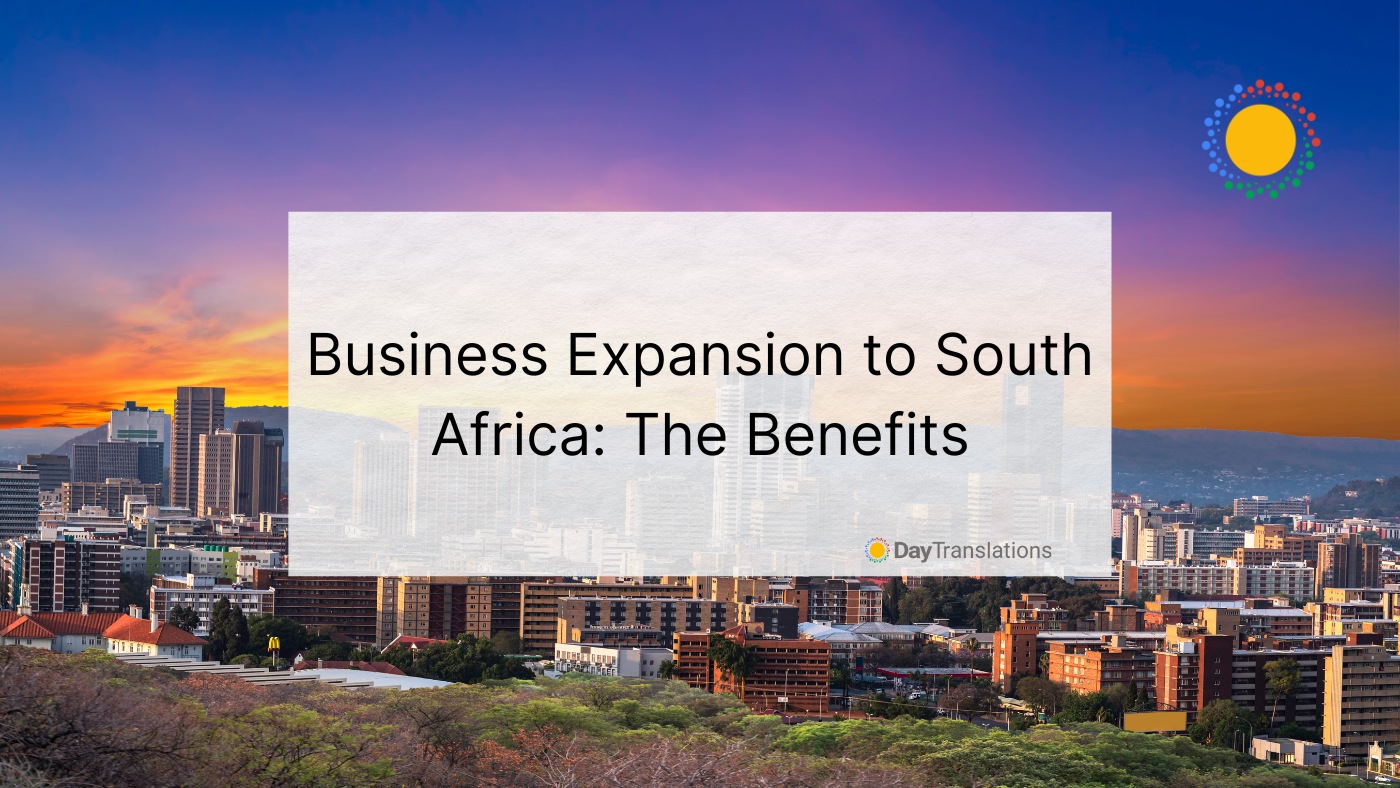Located in the southernmost part of the continent, South Africa is famous for its cultural diversity, fantastic natural beauty and varied topography that makes it a popular tourist destination.
In this blog post, we explore business expansion to South Africa and the many benefits involved in the process!
Understanding South Africa Economic Growth Opportunities
South Africa is a large country that is part of the African continent. It’s bordered by Namibia, Botswana, Zimbabwe, Swaziland and Mozambique. Interestingly, Lesotho, which is within South Africa, is an independent country. South Africa is closer to Australia than most of its trading partners in East Asia, North America and Europe.
It is currently enjoying a stable economy sustained by its tourism industry, great quantity of mineral resources and fertile lands suitable for agriculture. It is rich in intellectual resources as well.
Three cities serve as central hubs of South Africa. Bloemfontein is the judicial center. Cape Town serves as the legislative capital while the executive capital is in Pretoria. The center of commerce is the sprawling urban area of Johannesburg. The industrial center is located in Durban, a port city near the Indian Ocean. Other cultural, industrial and commercial centers are located in Port Elizabeth and East London in the Eastern Cape, which are also located close to the Indian Ocean.
South Africa as a Business Destination
It is estimated that several cities in South Africa are included in the top 10 corporate business destinations in the African continent. At the top spot is Johannesburg. Also in the list are Cape Town, Durban and Port Elizabeth. The report also named some emerging business hubs in different South African provinces such as Polokwane, Mbombela (Nelspruit) and Umtata (Mthatha).
South Africa as a Global Destination
The popularity of South Africa as a business destination continues. In October 2018, the London-based Global Sourcing Association named South Africa as the 2018 Global Destination of the Year. This proves that South Africa is recognized by the world for its offerings and value-added propositions for global businesses. These offerings include government support for the outsourcing industry, a scalable and talented workforce, and global best practices.
In receiving the international award for the fifth time, South Africa beat tough competition from Northern Ireland, Mauritius and Ukraine.
The growth of the BPO market in South Africa is remarkable. Since its establishment in 2012, the industry’s average growth annually is more than 20%. It has generated about 40,000 jobs, with top clients coming from the United Kingdom, Australia and the United States. Its dynamic growth rate overshadowed the growth rate of perennial BPO favorite destinations, India and the Philippines.
The South African government has more plans to improve its incentive scheme for the industry.
What Makes South Africa Attractive to International Businesses?
Many countries around the world, especially in the Asian and African regions, are making waves as favorable destinations to international businesses. These new markets have a diverse set of offerings that make them attractive to different companies.
Here’s why business expansion to South Africa makes sense:
Diversity in The Business Environment
In terms of emerging markets in Sub-Saharan Africa, South Africa is a winner because it’s promising, diverse, and sophisticated. It is a major investment location among African nations, with a potential market of about one billion people. The South African economy serves as a gateway to the African continent and its business environment provides additional market opportunities for the countries along its borders.
Spending Power of the Middle Class
South African is part of the BRICS group that includes Brazil, Russia, India and China; has a rapidly growing middle class whose spending power is increasing. South Africa’s economy supports a wide range of business opportunities for international companies.
Rich in Natural Resources
South Africa is rich in natural resources and is already receiving more attention from companies engaged in oil and gas exploration. The country offers high capability in research and development, an established base in manufacturing, innovation and world-class infrastructure. It is leading in the development and rollout of green industries and technologies.
Top Tier Training Facilities
The government supports the development of the country as an international business destination by creating legislations to promote skills development and workforce training by fast tracking the building of world class training facilities.
Aside from the above, the unrivaled natural beauty of South Africa makes it a lucrative leisure destination, which can offer a huge market potential for those who are engaged in the travel industry.
Responding to Diverse Challenges
South Africa is experiencing several challenges just like the other developing international markets. The country is still facing inequality, unemployment and poverty.
The country is taking bold steps to overcome the challenges. By 2030 it aims to achieve a 5% economic growth rate annually, reduce the prevalent inequality and lower the unemployment rate to 6%.
In order to achieve their targets, the government is planning a two-pronged approach. One is called the New Growth Path that will create about five million jobs to build a more equitable and developed economy.
The other is the Industrial Policy Action Plan. Its objective is to encourage the participation of the disadvantaged groups in the main sectors of the country’s industrial economy by investing in skills and small business development, infrastructure and getting involved in the development of targeted economic areas.
Although the financial institutions such as the South African Reserve Bank, which is the country’s central bank, is independent from SA’s government, it still helps the country by stabilizing the exchange and interest rates through its inflation program. The Johannesburg Stock Exchange (JSE) is also assisting the government in protecting inventors.
Favorable Business Destination
South Africa is a favorable destination for investors. It has excellent infrastructure, such as great tourism facilities, world-class telecommunication system and modern transportation network. It has a number of excellent seaports and other entry and access points to reach more potential markets within the continent and as far as India, the Gulf States, South America, Central America and Far East and South Asia.
Resources: Fintech and Localization go together when expanding to international markets. Visit our free guide on Going Global in the Fintech Industry.
Communicate Better to Ensure the Success of Your Business Expansion to South Africa
About 35 languages are spoken in South Africa, with eleven of them being official languages, that include Afrikaans and South African English. The latter is the de facto primary language that is used even in parliamentary and state discourse. But while you can get by in South Africa speaking only English, it is still important to show respect to the country’s native languages.
If you need Afrikaans translations of your business documents, work with the linguistic experts at Day Translations, Inc.
Our translators are all native speakers and live in-country. This gives you the assurance that the proper nuances of the languages are implemented. We are known for delivering high quality and accurate work, whatever size the translation project may be. Our translators, which include subject matter experts work with over 100 languages.












Sorry, the comment form is closed at this time.